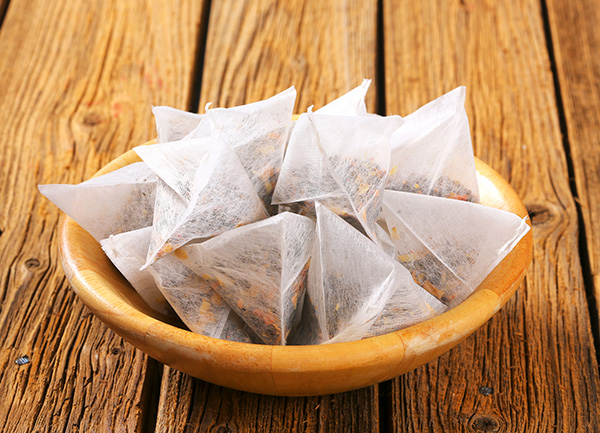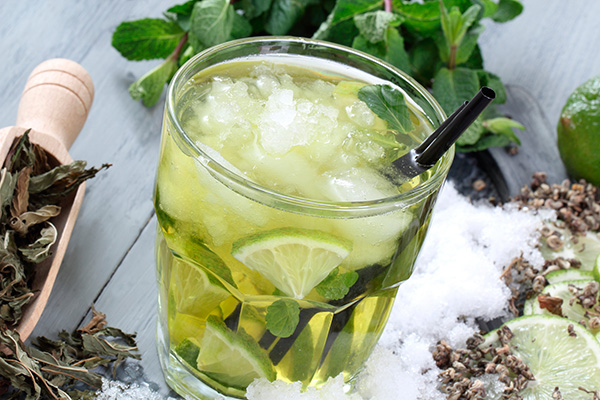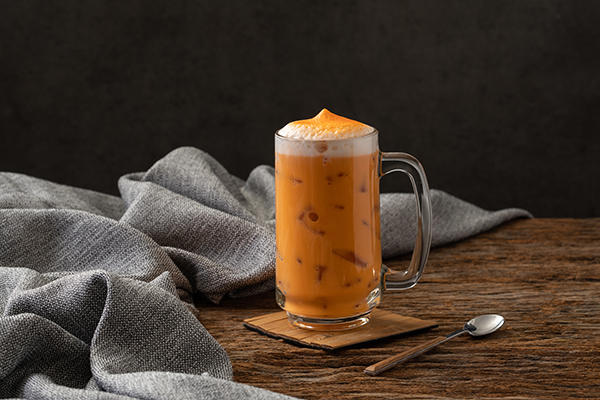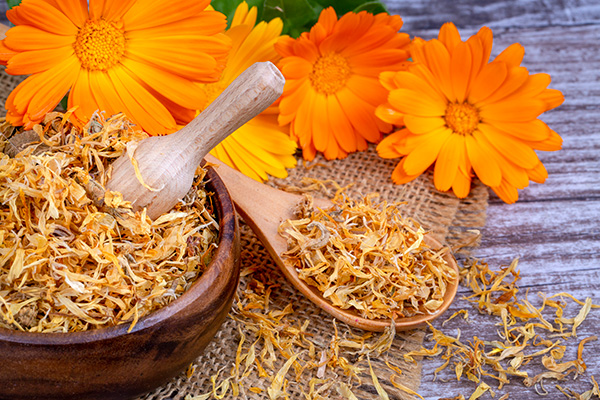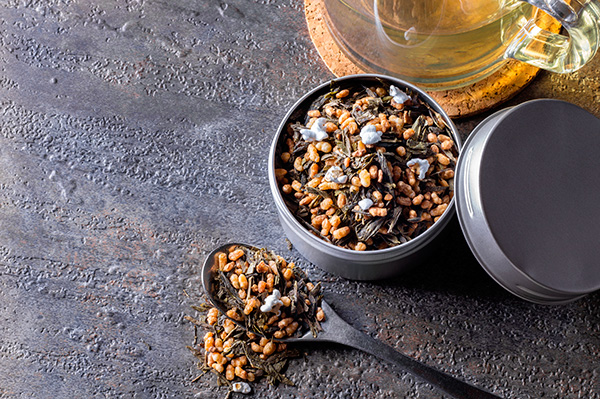4 Teas That Won’t Stain Your Teeth
Do you love tea but worry about its effects on your teeth? You’re not alone. Tea is a beloved drink globally, but it can stain teeth if one is not careful. But don’t despair – some teas won’t damage your pearly whites!
We will look closer into the four teas that won’t stain your teeth so you can still enjoy a cup without worrying about discoloration or damage to your enamel. We’ll discuss how they’re made, why traditional tees stain teeth, and how to prevent that.
So brew up a pot, and let’s get started!
Rooibos Tea
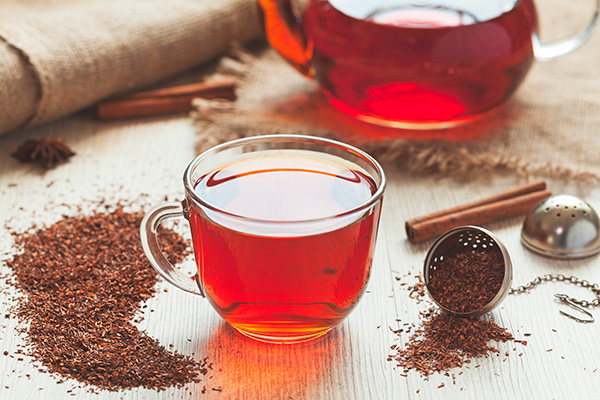
Rooibos Tea is a type of herbal tea made from the leaves of a South African shrub. It has a red-brown color, and the flavor is sweet and nutty.
Rooibos tea does not contain caffeine, unlike green and black tea. Additionally, it lacks tannins that can potentially stain your teeth. Moreover, it has a neutral or slightly acidic pH level.
Rooibos tea provides a variety of benefits:
- Packed with antioxidants, which can safeguard the body against harm caused by free radicals
- Contains minerals such as calcium, magnesium, and fluoride that promote strong bones and teeth
- May help improve heart health by reducing blood pressure and improving circulation
- Can aid in digestion and relieve stomach discomfort due to its anti-inflammatory properties
- May have anti-cancer properties due to its high levels of polyphenols
- Can help alleviate stress and anxiety thanks to its calming effect on the nervous system
- Has anti-allergic properties that can assist with respiratory conditions like asthma and hay fever.
Peppermint Tea
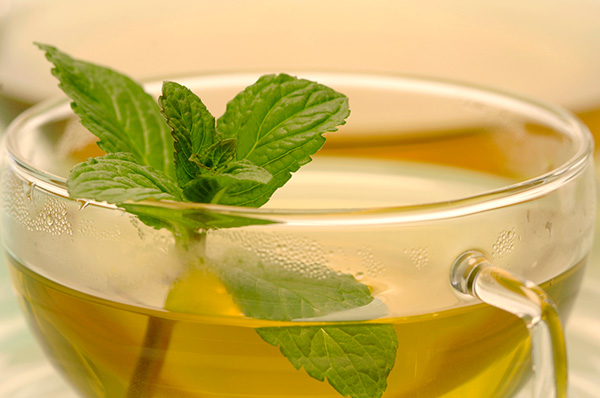
For a refreshing and healthy beverage, consider peppermint tea. This tea contains a wealth of beneficial botanicals and antioxidants. It has a nearly neutral pH and contains lower levels of tannins than other tea types, making it less likely to strain your teeth.
This tea provides a range of benefits, such as:
- Improves digestion
- May help relieve tension headaches and migraines
- May aid in weight loss
- May aid sleep
- May help relieve menstrual cramps
- May improve concentration
Moreover, you can drink peppermint tea hot or cold.
Ginger Tea

Ginger tea has a tangy and delicious taste without the risk of staining your teeth since it contains no tannins or acid. This tea is particularly effective in soothing stomach issues due to its lack of acidity.
When it comes to healthy herbal teas, ginger tea stands out, offering numerous benefits such as:
- Reducing inflammation
- Relieving nausea and vomiting
- Easing menstrual cramps
- Lowering blood sugar levels
- May help manage blood pressure and support heart health
- May protect your brain
White Tea
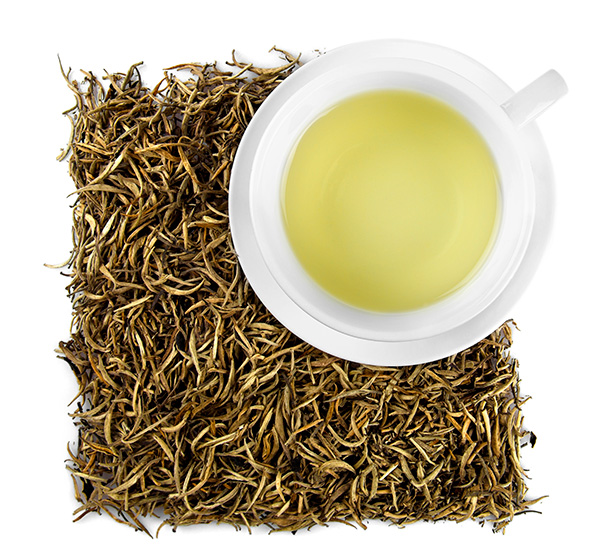
Manufacturers use the leaves of the Camellia sinensis plant to produce white tea. It has a lighter flavor than most teas, thanks to its minimal processing during manufacturing.
Unlike black and green teas, which can cause teeth staining due to their high levels of tannins and acidity, white tea is known for its low levels of both. As a result, white tea won’t stain your teeth as much.
Moreover, white tea can protect teeth from bacteria.
Here are some benefits of white tea:
- Contains high levels of antioxidants that fight free radicals and help prevent cell damage
- May help you lose weight by boosting metabolism by an extra 4–5%
- Helps promote healthy skin by protecting against UV damage and stimulating collagen production
- May lower the risk of heart disease
- Its capacity to inhibit cancer cell growth may give it anti-cancer properties
- Has antibacterial and antiviral properties
- May improve brain function and reduce the risk of neurodegenerative
Why Does Traditional Tea Stain Teeth?
The reason why certain foods can cause teeth staining has a scientific explanation. Interestingly, even some natural and healthy compounds in foods have the potential to cause staining on teeth.
Tooth stains caused by foods and drinks are primarily attributed to these three factors:
- Tannins. Coffee, tea, wine, and specific fruits are all sources of naturally occurring compounds like these. Their astringent taste and capacity to bind with proteins in the mouth are their distinctive characteristics. When consumed, tannins can cause teeth staining by binding with the enamel surface of the teeth. The stains caused by tannins tend to be darker and more difficult to remove than other teeth stains. Besides, tannins can cause dry mouth, making tooth discoloration more likely.
- Acidity. Acidic foods and drinks can have a significant impact on tooth stains. Acidic substances can erode the enamel surface of teeth, increasing their susceptibility to staining when consumed. Moreover, acidic foods and drinks can increase the porosity of teeth, making them more susceptible to deeper penetration of stains from other food and drink sources. Over time, repeated exposure to acidic substances can lead to significant discoloration of the teeth.
- Chromogens. These are pigment-producing compounds found in many foods and drinks. These pigments can stain the teeth by binding to the enamel surface when consumed. Factors like the concentration of pigments, the duration of contact with teeth, and the natural color of teeth can influence the degree of staining caused by chromogens. Coffee, tea, red wine, and soy sauce are examples of foods and drinks abundant in chromogens.
Types of Tooth Stains
Below are the common categories of teeth discoloration:
Extrinsic Staining
Tooth discoloration on the tooth’s enamel, or outer layer, is called extrinsic tooth staining. This staining is typically caused by external factors such as consuming pigmented foods and drinks, smoking, poor oral hygiene, and certain medications. Extrinsic stains are often superficial and can be removed through regular brushing and dental cleanings.
Common examples of extrinsic staining include yellowing or browning of the teeth due to coffee, tea, or tobacco use. Additionally, certain fruits like blueberries and pomegranates can cause temporary extrinsic staining. Extrinsic staining, although unattractive, is usually not a health risk to your teeth and is considered a cosmetic concern.
Intrinsic Staining
When tooth discoloration occurs within the tooth’s inner structure, which is dentin, it is classified as intrinsic teeth staining. This type of staining is often caused by genetics, tooth trauma, excessive fluoride exposure during childhood, and certain medications. Unlike extrinsic staining, intrinsic stains are usually more difficult to remove and may require professional treatment to improve their appearance.
Age-Related Staining
Age-related tooth staining is a form of discoloration that occurs naturally as we age. Over time, the gradual thinning of the outermost layer of our teeth, referred to as enamel, exposes more of the underlying layer, dentin.
Dentin is naturally yellow, and as it becomes more exposed due to thinning enamel, teeth may appear more yellow or brown.
How to Prevent Tea From Staining Your Teeth?
There are ways to reduce discoloration even if you enjoy drinking teeth-staining beverages such as tea:
- Add milk. According to a 2014 study, milk’s casein content creates a buffer that can prevent staining caused by tea. Interestingly, the study also found that adding milk to tea was as effective as vital bleaching treatments.
- Reduce contact with teeth. Tea flows over our teeth before we swallow it while drinking from a cup. Minimizing this flow or using a straw when sipping tea is advisable.
- Rinse your mouth with water after drinking tea. To remove tannins and chromogens from teeth, rinsing with pure water immediately after drinking tea can be effective.
- Brush regularly. Brushing and flossing at least twice daily is crucial for good oral hygiene. Do this once in the morning and once at night. Brushing and flossing after consuming dark-colored beverages is also recommended to remove excess tannins. Flossing helps remove hidden tannins that may not be accessible with a brush or mouthwash.
FAQ
Can You Drink Tea After Brushing Your Teeth?
Yes, you can drink tea after brushing your teeth. Allowing 30 minutes to pass after brushing is recommended to ensure that the fluoride in toothpaste is fully absorbed into the enamel of your teeth. Drinking tea immediately after brushing may wash away the fluoride and reduce its effectiveness.
Does Black Tea Stain Teeth?
Yes, black tea can stain teeth as it contains tannins that stick to the enamel of your teeth, causing discoloration over time.
Does Green Tea Stain Your Teeth?
Green tea is less likely to stain your teeth compared to black tea. On the other hand, it also includes catechins known for preventing plaque buildup and promoting oral health. However, excessive drinking of green tea or failing to maintain good oral hygiene habits can still lead to tooth discoloration.
Does Iced Tea Stain Your Teeth?
Yes, iced tea can stain your teeth, just like hot tea. Actually, because iced tea is frequently consumed more slowly and in more significant volumes than hot tea, it might be even more likely to cause staining.
Does Sweet Tea Stain Your Teeth?
Sweet tea is made with black tea, which contains tannins that can contribute to tooth staining. Moreover, sweet tea often has significant amounts of sugar, which may lead to tooth decay and worsen discoloration.
Does Yerba Mate Stain Teeth?
Even though Yerba Mate is a herbal tea, it can still cause teeth stains. As we know already, one of the main reasons different teas causing teeth stains is the contents of tannin. Yerba mate contains 14 percent tannins, around the same amount as black tea, with an average of 13.36%.
So again, Yerba Mate can stain your teeth.
Final Thoughts
Tea can be a culprit for teeth staining due to its acidity and tannin levels. However, choosing alternative teas like white tea, Rooibos tea, ginger tea, or peppermint tea can minimize the risk of staining.
Preventing stains is easy with simple steps such as limiting tea consumption, brushing immediately after drinking tea, or using straws while sipping. Mixing your tea with milk is also an excellent option to reduce staining on teeth.

